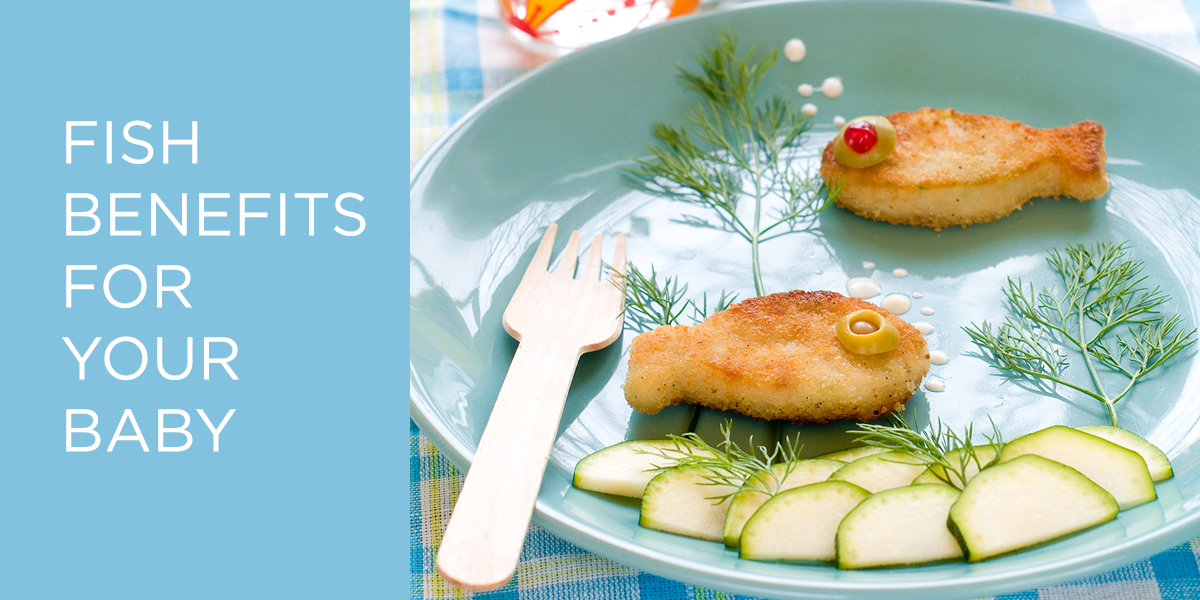Eating Fish While Pregnant – Fish Benefits for Baby
Is Your Baby Getting the Right Nutrients?
During pregnancy, you have at least three chances everyday to boost your baby’s health. A recent study found that moms-to-be who ate fish 2 to 3 times a week during pregnancy had babies who reached milestones such as imitating sound, recognizing family and drinking from a cup, more quickly.vi
- At 6 months children of mother’s who ate fish during pregnancy are more likely to sit unsupported and crawl than children of mothers who did not eat fish during pregnancy
- At 9 months children of mothers who ate fish during pregnancy are more likely to be able to climb stairs, drink from a cup, write or draw and put 2 words together than children of mother’s who did not eat fish during pregnancy
Help Your Baby’s Brain Develop:
Omega-3s found in seafood, such as tuna, make up a major part of the brain. So when pregnant and breastfeeding moms eat seafood, it provides an important foundation for their baby’s brain to develop normally. The 2010 Dietary Guidelines for Americans recommend that pregnant and breastfeeding moms should eat at least 8 ounces of seafood – that’s two servings – per week to help their baby’s eyes and brain develop.
Increase Omega-3s for Better Eyesight:
Studies also suggest that not having enough DHA, an important omega-3 found in seafood such as tuna, during pregnancy can have a negative effect on a baby’s eye development. Research from the Child and Family Research Institute suggests that women who eat a lot of meat but little fish can be deficient in omega-3s, and their babies did not do as well on eye tests as babies from mothers got plenty of this important nutrient.vii
Help Your Baby Get a Good Night’s Sleep:
Eating seafood increases the amount of essential omega-3s in a mother’s breast milk, which helps nourish developing babies. One study found that babies of mothers with higher DHA levels during pregnancy showed significantly quieter and less active sleep, and less sleep-wake transition than those of mothers with lower DHA levels. In other words, they slept better.viii
Eat Seafood During Breastfeeding for More Benefits:
Eating seafood increases the amount of essential omega-3s in a mother’s breast milk, which helps nourish developing babies. Studies show that children who are breastfed tend to have better eyesight, higher IQ scores and do better in school. These benefits may be due to the high level of omega-3s in breast milk.ix
Did You Know? More than 200,000 women die from heart attacks every year—five times the number of women who die from breast cancer.
vi The American Journal of Clinical Nutrition. Associations of maternal fish intake during pregnancy and breastfeeding duration with attainment of developmental milestones in early childhood: a study from the Danish National Birth Cohort. Available at:http://www.ajcn.org/content/88/3/789.abstract. Accessed March 5, 2012.
vii The American Journal of Nutrition. Essential n–3 fatty acids in pregnant women and early visual acuity maturation in term infants. Available at: http://www.ajcn.org/content/87/3/548.full?sid=5e4016a6-830a-4856-a5e4-5e3ea7bd1622. Accessed March 5, 2012.
viii PubMed. Maternal consumption of a DHA-containing functional food benefits infant sleep patterning: An early neurodevelopmental measure. Available at: http://www.ncbi.nlm.nih.gov/pubmed?term=3.Maternal consumption of a DHA-containing functional food benefits infant sleep patterning: An early neurodevelopmental measure. Early Human Development. Accessed March 5, 2012.
ix The American Journal of Clinical Nutrition. Associations of maternal fish intake during pregnancy and breastfeeding duration with attainment of developmental milestones in early childhood: a study from the Danish National Birth Cohort. Available at:http://www.ajcn.org/content/88/3/789.abstract. Accessed March 5, 2012.
Seafood and Pregnancy Resources:
- Learn the do’s and don’ts of Eating Seafood While Pregnant

- Download our free 15-page “The Pregnant Woman’s Guide to Eating Seafood” on your computer, phone, or print it out for easy reference for tasty seafood/fish recipes.
- Save the Seafood Tips Bookmark





